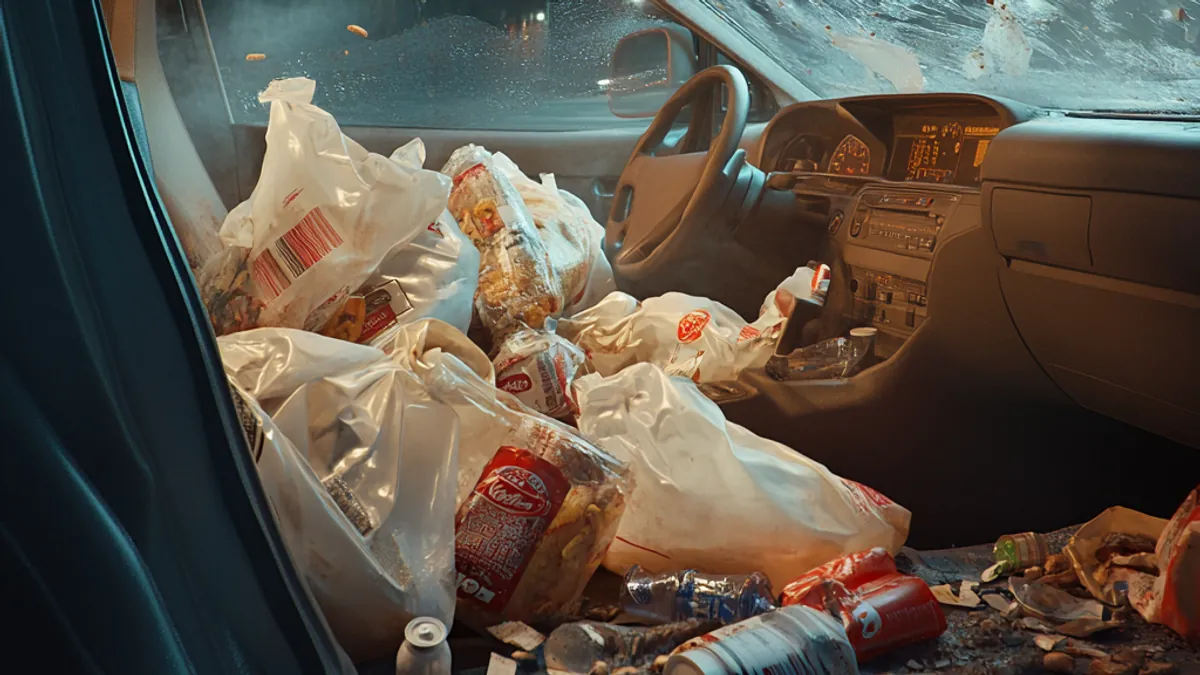
How much clutter is allowed?
At what point does damage to the car result in a fine being imposed on you?
Updated 11/22/2025Reading time: 2 minutes

A messy car can result in fines. At what point does your personal mess become someone else’s problem?
For some people, a car is simply a means of transportation to get from A to B. For others, a car is a second living room – and depending on the owner’s regularity, it can sometimes look like Hempels under the sofa: empty fast food bags, water bottles, candy wrappers, or other remnants of past trips then pile up in the interior. But when is it too much?
In principle, you can of course leave whatever you want in your car – with some exceptions in very hot weather, for example. But if you have to sit in a chair to be able to drive, or if a large, heavy object becomes a permanent fixture in your car, things become critical, says Uwe Lenhart, a traffic law attorney in Frankfurt am Main.
According to Article 22, Paragraph 1, Sentence 1 of the Road Traffic Act (StVO), you must store and secure the load, including devices for securing the load and loading equipment, in such a way that it does not slip, fall, roll back and forth, fall or cause avoidable noise, even in the event of emergency braking or sudden evasive movement. Otherwise, a warning fine of 35 euros will be due. It’s also important that your sight or hearing is not restricted by cargo or rubbish – otherwise you could be subject to a 10 euro fine if caught.
It’s even worse if you can’t step on the brake pedal because there are objects lying around in the footwell, if the accelerator pedal is stuck, or if you can’t see anything because there is an object in front of the window. If an accident then occurs or a third party is injured, threatened or even just harassed, criminal law may also apply: “Bodily injury due to negligence, for example, is a consideration,” says Lenhart.
And because your car’s mess contributes to unavoidable accidents, you may even suffer some or all of the damage.
Your car must also be in good condition on the outside, for example the number plate: According to Article 10 Paragraph 2 Sentence 1 Paragraph 1 of the Vehicle Registration Law (FZV), the number plate must not be reflective, covered or dirty – the number plate must always be easy to read.





